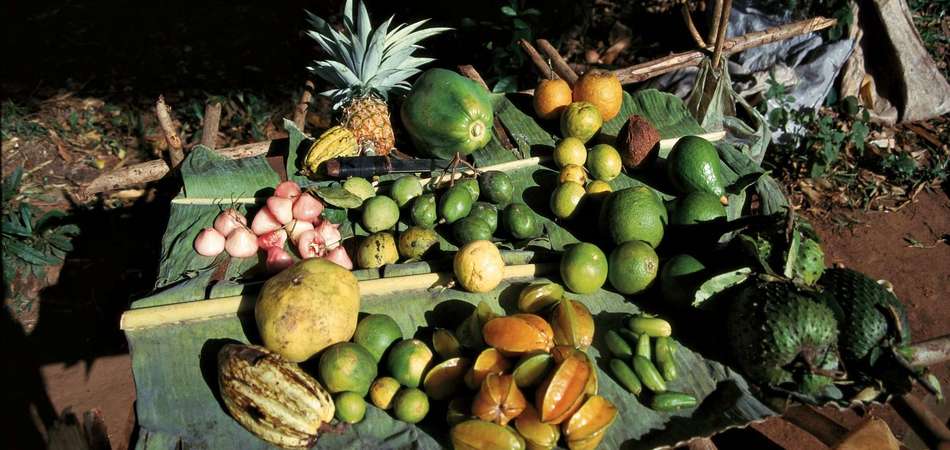Zanzibar Village Tour
Tour snapshot
3 Hours
20 persons
Tanzania Zanzibar
Day Trips
Overview
Zanzibar, an enchanting archipelago off the coast of Tanzania, is famous for its breathtaking beaches, rich history, and vibrant culture. However, there’s much more to discover beyond the well-trodden tourist paths. A village tour in Zanzibar presents visitors with a unique opportunity to immerse themselves in the local culture, interact with community members, and appreciate the island’s diverse traditions. This guide explores the various aspects of a village tour in Zanzibar, emphasizing its cultural significance, engaging activities, delectable culinary experiences, and its positive impact on local communities.
Cultural Significance of Village Tours in Zanzibar
A village tour in Zanzibar serves as an excellent gateway to understanding the island’s rich cultural tapestry. The villages are home to various ethnic groups, most notably the Swahili people, who have significantly influenced the island’s language, architecture, and customs. By engaging with local residents, visitors gain insights into their daily lives, traditions, and enduring values. Guests often witness traditional practices such as weaving, pottery, and fishing, which have been lovingly passed down through generations.
Additionally, these tours provide a deeper appreciation for Zanzibar’s history. Many villages are rich in stories of trade and cultural exchange that span centuries. The influences of Arab, Persian, Indian, and European traders are vividly reflected in the local architecture and cuisine. Participating in a village tour allows visitors to learn about these historical interactions and their lasting impact on Zanzibar’s identity.
Interactive Activities and Experiences on a Village Tour in Zanzibar
A village tour in Zanzibar is not just an observational experience; it’s an interactive journey brimming with activities that engage all senses. One popular highlight is visiting local markets, where guests can wander through vibrant stalls filled with fresh produce, aromatic spices, and artisanal crafts. The lively atmosphere, filled with the sounds of bargaining and the aromas of spices, creates a sensory delight.
Another significant aspect of village tours is the opportunity to partake in traditional cooking classes. Local chefs often welcome visitors into their homes, sharing insights into Zanzibar’s culinary heritage. Participants can expect to prepare delicious dishes using locally sourced ingredients like coconut, seafood, and spices such as cardamom and cloves. This hands-on experience not only imparts valuable cooking techniques but also nurtures a connection between participants and their hosts.
Moreover, many tours include guided walks through picturesque villages, allowing visitors to appreciate the stunning natural beauty of the surroundings. The lush landscapes, adorned with palm trees and vibrant flora, create a scenic backdrop for exploring local life. Knowledgeable guides often share captivating stories about the unique flora and fauna of Zanzibar, enriching the overall experience with ecological knowledge.
Culinary Delights Await on Your Village Tour in Zanzibar
Zanzibar’s culinary scene is a delectable blend of cultural influences and abundant natural resources. A village tour typically culminates in a communal meal that showcases traditional dishes. Visitors may find themselves feasting on biryani, grilled fish, or ugali—a staple made from maize flour.
The use of spices is essential to Zanzibari cuisine, and many tours feature visits to spice farms where guests learn about the cultivation and harvesting processes of various spices. Guided tours of these farms provide insights into how spices are grown and processed, often concluding with tastings of spice-infused dishes and teas, allowing visitors to savor the rich flavors of Zanzibar.
Food is a vital aspect of Zanzibari culture, bringing people together. Sharing meals with local families fosters a sense of community and belonging. Visitors often depart with cherished recipes and unforgettable memories of laughter and camaraderie around the dining table.
Positive Impact of Village Tours on Local Communities
Participating in village tours has significant benefits for local communities in Zanzibar. These tours provide a sustainable source of income for residents who rely on tourism for their livelihoods. By choosing to engage with local guides and artisans, visitors directly contribute to the economy of these villages.
Furthermore, village tours encourage cultural preservation by motivating locals to maintain their traditions and crafts. As tourists express interest in local customs and practices, residents become more driven to keep their heritage alive. This dynamic fosters a mutually beneficial relationship where visitors gain authentic experiences while supporting the community’s cultural identity.
However, it is crucial for tourists to approach these experiences responsibly. Engaging with local communities should be done with respect for their customs and way of life. Responsible tourism practices ensure that the benefits of tourism are equitably shared, minimizing any negative impacts while enhancing the overall experience of a village tour in Zanzibar.
Included
Select Dates
{{type.name}}
{{type.desc}}
{{type.display_price}} per person
Guests
Extra prices:
- {{total_price_html}}
- {{pay_now_price_html}}
Guest in maximum
BOOK NOW Book NowImportant information
Itinerary
FAQs about
Zanzibar Village Tour
A village tour is an immersive cultural experience where visitors explore traditional Zanzibari villages, interact with locals, participate in hands-on activities (like cooking or crafting), and learn about the island’s heritage, customs, and daily life.
A village tour offers: Authentic insight into Swahili culture Opportunities to engage with local communities Exposure to traditional crafts, cooking, and farming A chance to support sustainable tourism and local livelihoods
Popular village tour destinations include: Jambiani – coastal village known for seaweed farming Makunduchi – rich in traditional ceremonies and Swahili architecture Kizimkazi – historic fishing village with ancient mosques Bwejuu and Matemwe – quiet, scenic coastal settlements Each village offers unique traditions and experiences.
Yes! Village tours are educational and interactive, making them suitable for all ages. Kids enjoy market visits, farm walks, and simple hands-on activities like food prep or coconut husking.
Yes, but always ask for permission first, especially when photographing people. Respect local customs and avoid intrusive behavior.
Guest reviews
You might also like
Dolphin & Marine Conservation -Make a Difference in one of the most beautiful destinations
Tanzania Zanzibar









